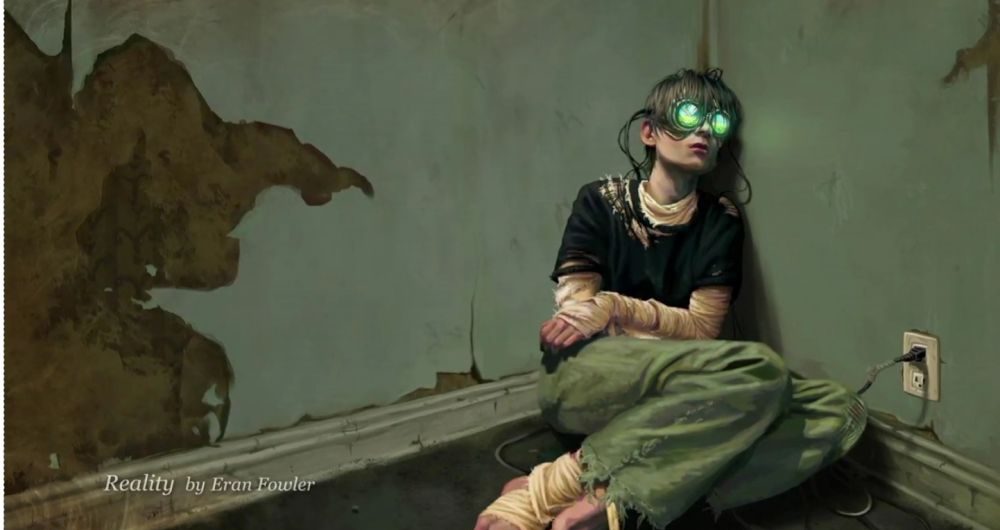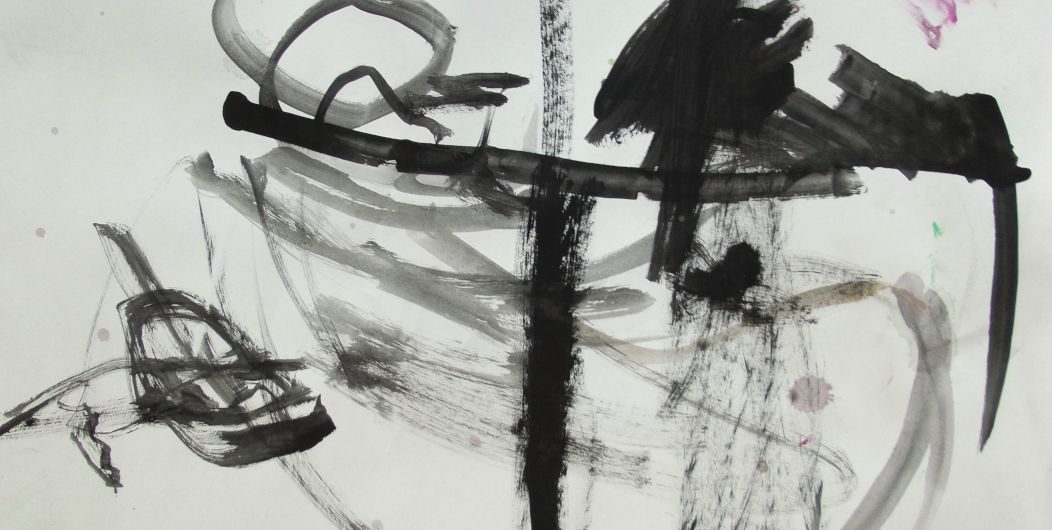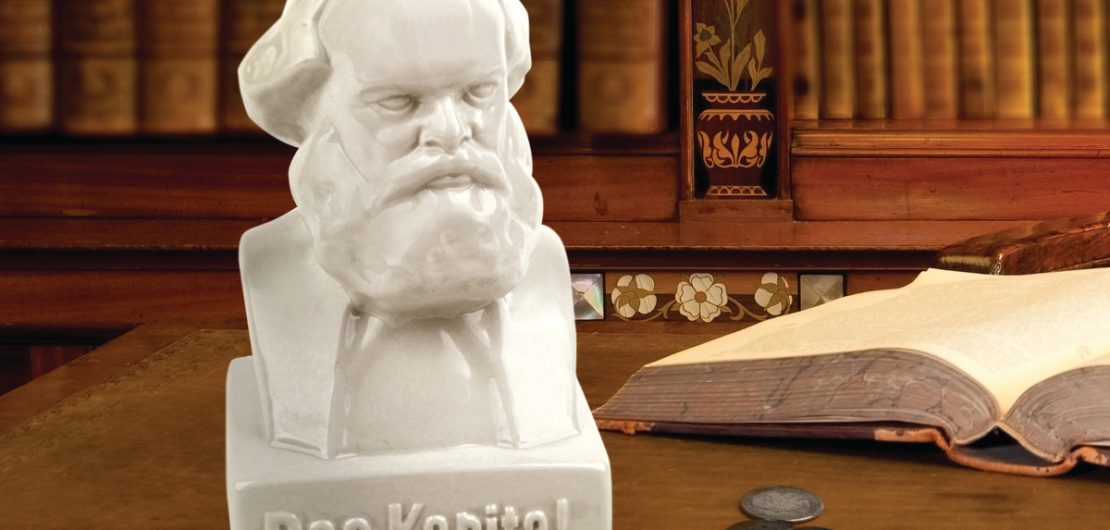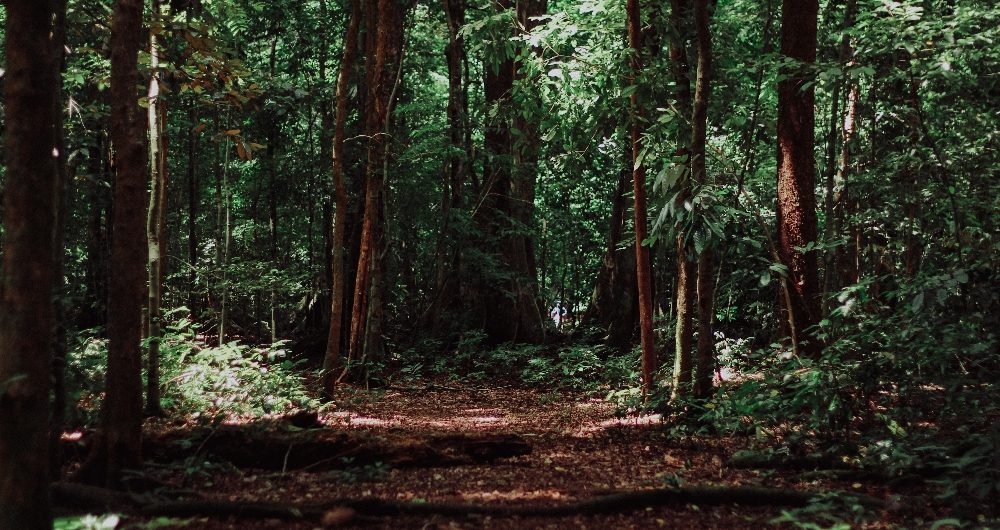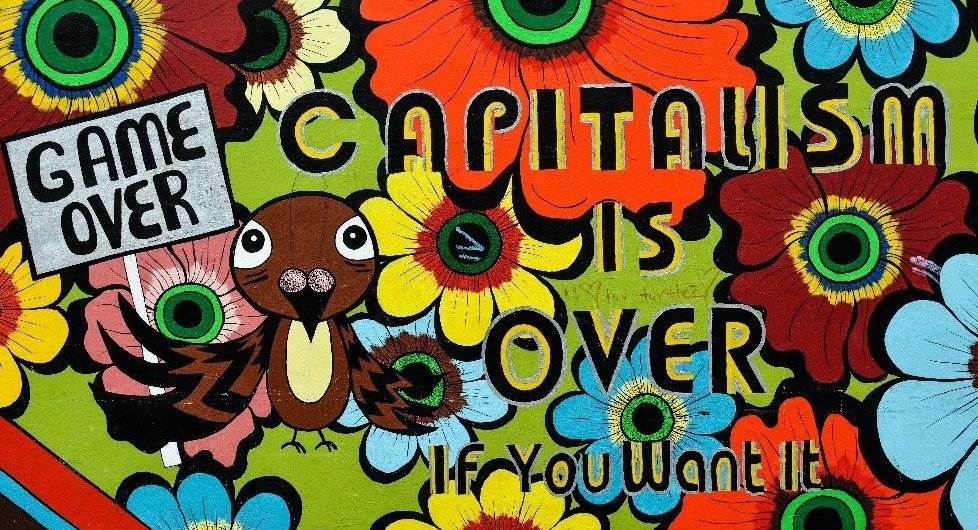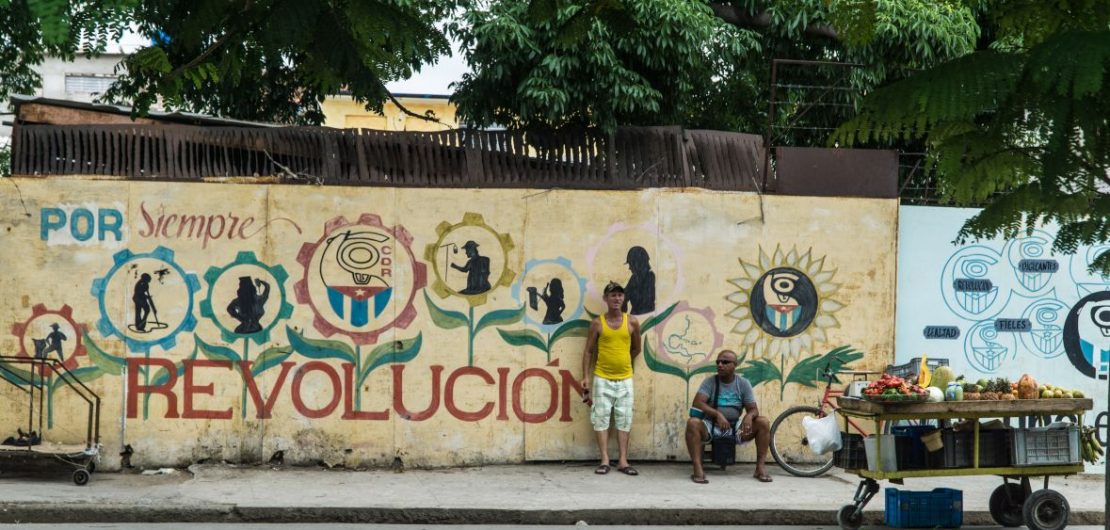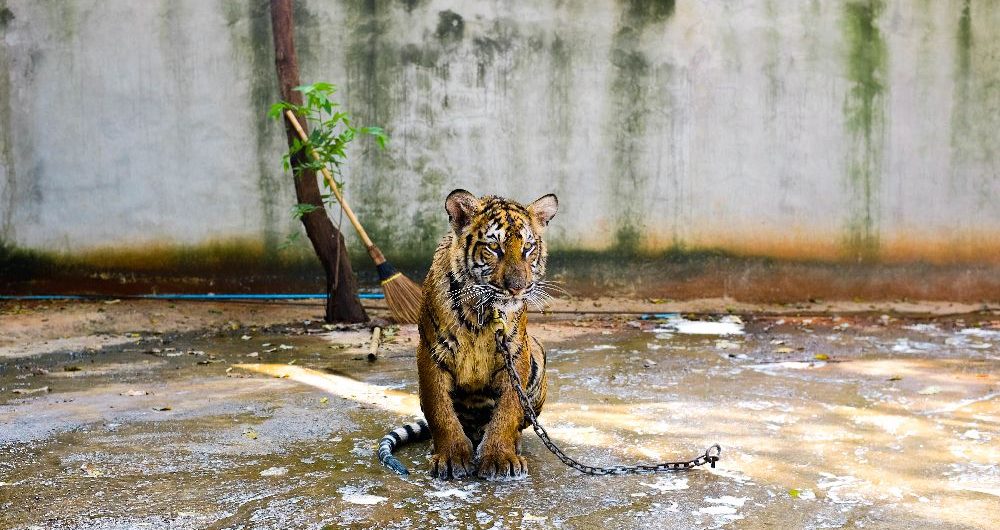 Allgemein
Allgemein
THE MEGAMACHINE AS A FORM OF SOCIAL ORGANIZATION
On July 10th, 1985, the Rainbow Warrior, ship of the environmental organization Greenpeace, was sunk by agents of the French Service Action. From the 1940’s until the 60’s, the US-Army had been testing atomic bombs on the Marshall Islands. What used to be a South Pacific paradise was now contaminated. The people suffered diseases and cancer, children were born with abnormalities. In 1985, the residents of the Island Rongelap asked Greenpeace for help. The Rainbow Warrior came and relocated 300 people to the Island of Mejato. From Mejato, the ship was supposed to move to New Zealand for a short stop and then to the Moruroa-atoll (French Polynesia) to protest against French atomic-bomb tests.
While the Rainbow Warrior was anchored in the port of Aukland, New Zealand, during the night of July 10th, two bombs detonated in the ship’s hull. While the ship sunk, most of the crew were able to save themselves, except for the photographer Fernando Pereira who drowned.1 • “Pereira died, because the French Secret Service sunk a ship with people who where engaged in protecting the environment” (Katja Iken in Spiegel: http://www.spiegel.de/einestages/rainbow-warrior-anschlag-auf-greenpeace-schiff-1985-a-1042273.html) Tragically, he was parent of two small children. The investigations of the New Zealand police lead to the French Secret Service. Under growing pressure, the government under Francois Mitterand steadily admitted being responsible for the attack. In 1987, the French government paid a compensation of8 million US-Dollars to Greenpeace and about 7 million to the New Zealand government. All of the people involved kept their positions in the French government, some received highest military honors.
In 1985, I was six years old. The pictures of the Rainbow Warrior were on the media everywhere. The Greenpeace activists were my heroes. I would look at the Greenpeace magazines that shocked me deeply with pictures of baby seals slain with clubs, burning rainforests and dead whales, swimming in a sea of blood. If you take the perspective of a six or seven year old child, you see butts all around you and hear the voices of adults from above. In my memory, the adults spoke mostly about work.
“How was work?” “Well, ok…” “I have to work tomorrow.” “Will you go to work?” “Yes.” “I hear that you have a new job? How do you like it?” “It‘s pretty ok…” work…” “at work…” “for my work…” “in my work…” “work…” “work…” “work…”
I felt there was a huge chasm between the conversations I overheard from the adults and the terrifying pictures that stuck in my childish mind from the Greenpeace magazines. They always wanted to know what I want to become when I grew up. The question is hard to understand for a seven year old. What should I become? I’m a human being already, and there is not much more I can actually become. Well, a grown-up human being, someday. But such a stressed out, worried adult, who is at the same time dependent on and plagued by his daily work, like the adults around me, I certainly didn’t want to become. Why is their work so important to them, when at the same time such horrible things are happening?
Later, when I understood better what they were up to with that question, I always answered that I wanted to become an environmentalist, like the Greenpeace activists. After I learned to read and write, I printed myself business cards, stating environmentalist as profession. Back then, questions evolved that didn’t change much over all these years. Why do these people, by all costs, want to kill whales and seals? And why do they want to destroy these beautiful rainforests everywhere? And why are the people from Greenpeace obviously the only ones who care and try to stop the killing?2Back in the days, Greenpeace still consisted mostly of real activists and was pretty radical. The organization has since been corrupted to be part of the non-governmental industrial complex and as such serves as vital part of industrial capitalism. I asked these questions as a child, but soon stopped, because I would never receive a satisfying answer. “You won’t understand this, you are to small…” They would avoid my questions. They didn’t like them. They were unpleasant for them, and they had no answers.
As a child, one tends to think that the grown-ups are very smart and know more than children. Unfortunately, this is a fraud. Most adults are very stupid, highly indoctrinated, and don’t know any answers to the real important questions. The questions remain the same, an I guess they will until the very day of my death. Why is our culture killing the planet? Why does nobody care about it? Why are people always talking about work, while there is a horrible slaughter going on?
When I asked my grandmother why all the Indians had to die, she answered that this had been God’s will. The Indians, soon enough, would have built big ships on their own, sailed to Europe and exterminated us, she said. How great that God is with us! Thanks to answers like this, I learned to forget my questions and hide my feelings over time, which, after all, arose from a very normal empathy I felt for our fellow beings, and indeed for the whole wonderful, unique planet we all inhabit . I went through the mainstream culture with severe depressions. I held myself together with books, which helped me to survive disturbing dreams, think deeply and question everything. I will always be grateful to these writers.3Erich Fromm, Derrick Jensen, Black Elk, John (Fire) Lame Deer, Vine Deloria Jr., Jack D. Forbes, Daniel Quinn, Henry David Thoreau…
Finally, I found myself realizing that the decision I had made when I was seven years old, to write environmentalist on my business card, was still right and valid. Within a culture that mistreats its fellow creatures like ours, resistance is a moral imperative. I understood this as a child. Actually, it isn’t very hard to understand. All we have to do is to look around us. Foolishly, we have built a whole culture based on distractions and denial.
It also has to do with the form of social organization this culture is based on, which might be the most destructive invention that humans have ever made. Gunpowder, for example, is surely a very destructive invention, especially if you use it, like our culture does, for weapons. Without firearms, it would have been far more difficult to drive big animals like bears, bison or Siberian tigers to the brink of extinction. Without firearms, the conquest of the Americas and the genocide of indigenous peoples worldwide would have been far more difficult. Firearms therefore take the second place on my rank of the most destructive inventions.
The plow and the combustion engine compete for the third place. While the wheel, which is often mentioned as one of the most important inventions, isn’t very destructive by itself, the car, with all the surrounding “culture”, infrastructure and industry, surely is one of the most destructive human artifacts. It is an extreme waste of energy to move a machine of about two tonnes of weight, most times only to transport one single human being. Car culture is the most energy intensive form of transportation that ever existed. We can only afford this unbelievable decadence because we learned to use fossil fuels for combustion engines. Apart from the waste of energy, it is also not very intelligent to poison the air that we need to breathe. It is a crime we commit to future generations.
“Technological inventions take from the earth but give nothing in return. Look at automobiles. They were, in a sense, dreamed up over a period of time, with different people adding on to each other’s dreams — or, if you prefer, adding on to each other’s studies and trials. But all along the way, very little, if anything, was given back to the hungry, invisible divinity that gave people the ability to invent those cars. Now, in a healthy culture, that’s where the shamans would come in, because with every invention comes a spiritual debt that must be paid, either ritually, or else taken out of us in warfare, grief, or depression.”
Martin Prechtel4 • Saving The Indigenous Soul: An Interview With Martin Prechtel: http://www.derrickjensen.org/2001/04/saving-indigenous-soul-interview-martin-prechtel/
The plow stands for monocultural agriculture. I see agriculture as the blueprint of colonialism. They take a piece of land, drive away or kill all indigenous living beings, animals, humans and plants, and replace them with a monoculture of one species, individuals entirely brought into line. In relation to that stands the most destructive invention humans ever made. Its not a technological innovation, but a form of social organization. Indeed a very technological form, and therefore called the megamachine.5The term comes from Lewis Mumford’s work “The myth of the machine”, published in the 1960’s
A form of social organization that makes is possible for a hundred thousand people to spend the majority of their lifetime happily working for the goals of giant corporations like Daimler-Benz, BASF, Bayer, Deutsche Bank et cetera. Hundreds of thousands of employees, working strictly organized and brought into line within a hierarchical organization. There often is a very strong identification of the employees with their company. This is the modern version of the social organization that made it possible for the ancient Egyptians to build the giant symbols of their civilization. In ancient Egypt, the slaves already formed an organized caste. They used strikes as a way to fight for better food, housing or working conditions. Even back then, people had already accepted their fate as a working class, as part of the machine, and tried to ensure slightly better conditions within it.
Slavery and agriculture are the cradle of civilization. Large-scale monoculture is only possible with slaves. Initially, slaves must be hold in captivity and forced to work. Nobody volunteers to be a slave, at least at the beginning. Over a few thousand years, our culture perfected the machine more and more. With a permanent combination of organized violence, lies, propaganda and powerful institutions like state, church and school, the original forms of social organization were destroyed and replaced with a breed of totally isolated human beings, who identify themselves as workers and do not resist any more. These are the happy slaves that serve the machine. Without them, factories are unthinkable, there would be no industrial agriculture, no machines, no industrial production. Nothing of this would be possible without the innovation of the mechanical social organization, which began as massive slavery in the ancient civilizations. About 80% of the population in ancient Greece were slaves.
Institutionalized religion works as instruction manual for the machine. Christianity plays an important role for the indoctrination, by teaching us for thousands of years that life is and a vale of tears full of privation. Later, the evangelical Christians declared the work ethic as new religious doctrine and thus created the basis for capitalistic ideology.6Max Weber: “The Protestant Ethic and the Spirit of Capitalism,” 1920 The reward comes after death, if we behave well and obedient during our lifetime. Institutionalized religion has proven to be one of the most effective tools for suppression. Due to almighty belief systems like this, people don’t have to be suppressed by brute force; through faith, they will suppress themselves, others and their own children.
“Unquestioned beliefs are the real authorities of a culture. Nowadays, parents raise their children according to the religion of capitalism and the believe in an almighty market, in order that they will have a chance to be successful in this culture.”
Robert Combs
Industrial capitalism is the most extreme and by far most destructive form. It combines this form of social organization with actual machines. The humans who are functioning as part of the machine are themselves handling machines all the time. They identify more with their car, their computer, their smartphone and the company they are part of than they identify with other living beings –including humans. The ongoing extinction of insects and songbirds doesn’t lead to an uproar. But driving restrictions due to increasing air pollution do. The human parts of the machine can’t imagine a life without cars and other machines; the machine belongs to them as they belong to it, and they are absolutely loyal. Neither the machine nor its parts are intelligent or know any kind of morality. It is not intelligent to poison the air we need to breathe, the water we need to drink, the soil we need to grow food, and even the food itself. Pesticides and Herbicides are weapons of war. Where is the movement for peace?
People who strike, fight for better working conditions or against cutbacks of jobs are already perfectly oiled gears of the machine. They have been born and raised as its parts, and their perception has very restricted limits. They don’t know any real freedom. As part of a machine, you don’t need to think, but to function. The gainful employment, the profession, is an important part of individual identity. If humans exist as parts of a machine, they forget how to be responsible for their own lives and the lives of their children. This is why so few people are resisting against the destruction of the planet. The liability for the machine is never carried by its parts. It’s a strictly hierarchical system, and the responsibility is always up in the hierarchy. A machine has no empathy. Applied organized violence is part of its function.
“The West won the world not by the superiority of its ideas or values or religion […] but rather by its superiority in applying organized violence. Westerners often forget this fact; non-Westerners never do.”
Samuel Huntington
This form of social organization made it possible for Europeans to conquer almost the whole world. The machine-like functioning of European society made the brutal extinction of most of life on the American continent possible. Propaganda and rationalizations, like the doctrine of Manifest Destiny, served as instruction manuals. Needless to say that the Third Reich, with the industrial mass extermination of unwanted human beings, worked according to the principles of the megamachine. The IG Farben knew what their Zyclon B would be used for. For the few people who are still able to think and feel, this culture is long since a dystopian nightmare. For the indoctrinated, this nightmare is the bare reality.
“If a creature learns to completely accept captivity and slavery, it can drive out the pain. But to be free, one must look at the pain; one must go through all the terror.”
Jack D. Forbes
Our culture is based on institutionalized lies that have been erected as barriers to truth. One of the most obvious and thus most propagated lies is that we can have industrial civilization and a living planet. The bare truth is that we have to decide. As things stand, most people in our culture made their choice in favor of the megamachine and against a living planet.
After all, humans are animals. The wild packs of wolves, the enemies of civilization, have been exterminated nearly everywhere; nowadays, all that is left are state-owned, domesticated dogs. Dogs can be raised to be the most loving and caring creatures, like guide-dogs who take care of blind humans, with a highly developed social competence. But they can also be conditioned to become terrible monsters, like the Spanish conquistadors with their fighting dogs, fed with butchered Indian children. Violence has always been the most effective tool of our civilization.
